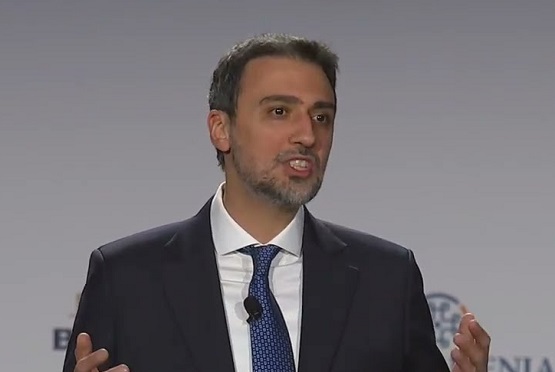 The Battle of Tigranocerta was fought on October 6, 69 BC between the forces of the Roman Republic and the army of the Kingdom of Armenia led by King Tigranes the Great. The Roman force was led by Consul Lucius Licinius Lucullus, and Tigranes was defeated. His capital city of Tigranocerta was lost to Rome as a result.
The Battle of Tigranocerta was fought on October 6, 69 BC between the forces of the Roman Republic and the army of the Kingdom of Armenia led by King Tigranes the Great. The Roman force was led by Consul Lucius Licinius Lucullus, and Tigranes was defeated. His capital city of Tigranocerta was lost to Rome as a result.
The battle arose from the Third Mithridatic War being fought between Roman Republic and Mithridates VI of Pontus, whose daughter Cleopatra was married to Tigranes. Mithridates fled to seek shelter with his son-in-law, and Rome invaded the Kingdom of Armenia. Having laid siege to Tigranocerta, the Roman forces fell back behind a nearby river when the large Armenian army approached. Feigning retreat, the Romans crossed at a ford and fell on the right flank of the Armenian army. After the Romans defeated the Armenian cataphracts, the balance of Tigranes' army, which was mostly made up of raw levies and peasant troops from his extensive empire, panicked and fled, and the Romans remained in charge of the field.
Tigranes' expansion into the Near East led to the creation of an Armenian empire that stretched almost across the entire region. With his father-in-law and ally securing the empire's western flank, Tigranes was able to conquer territories in Parthia and Mesopotamia and annex the lands of the Levant. In Syria, he began the construction of the city of Tigranocerta (also written Tigranakert), which he named after himself, and imported a multitude of peoples, including Arabs, Greeks, and Jews, to populate it. The city soon became the king's headquarters in Syria and flourished as a great center for Hellenistic culture, complete with theaters, parks and hunting grounds.
This period of Armenian hegemony in the region, however, was coming close to an end with a series of Roman victories in the Roman–Mithridatic Wars. Friction between the two had existed for several decades, although it was during the Third Mithridatic War that the Roman armies under Lucullus made significant progress against Mithridates, forcing him to take refuge with Tigranes. Lucullus sent an ambassador named Appius Claudius to Antioch to demand that Tigranes surrender his father-in-law; should he refuse, Armenia would face war with Rome. Tigranes refused Appius Claudius' demands, stating that he would prepare for war against the Republic.
Lucullus was astonished upon hearing this in the year 70, and he began to prepare for an immediate invasion of Armenia. Although he had no mandate from the Senate to authorize such a move, he attempted to justify his invasion by distinguishing as his enemy king Tigranes and not his subjects. In the summer of 69, he marched his troops across Cappodocia and the Euphrates river and entered the Armenian province of Tsop'k', where Tigranocerta was located.
With no army left to defend Tigranocerta, and a foreign populace that gleefully opened the gates to the Romans, Lucullus' army began the wholesale looting and plunder of the city. The city was literally deconstructed piece by piece. The king's treasury, estimated to be worth 8,000 talents, was looted and each soldier in the army was awarded 800 drachma. The battle also resulted in severe territorial losses: most of the lands in Tigranes' empire to the south of the Taurus fell under the sway of Rome.
Despite the heavy losses Tigranes suffered, the battle was not decisive in ending the war. In retreating northwards, Tigranes and Mithridates were able to elude Lucullus' forces, though losing again against the Romans during the battle of Artashat. In 68, Lucullus' forces' began to mutiny, longing to return home, and he withdrew his forces from Armenia the following year.
The battle is highlighted by many historians specifically because Lucullus overcame the numerical odds facing his army. The Italian philosopher Niccolò Machiavelli remarked upon the battle in his book, The Art of War, where he critiqued Tigranes' heavy reliance on his cavalry over his infantry.
Battle of Tigranocerta. Documentary BBC
Կայքում տեղ գտած մտքերն ու տեսակետները հեղինակի սեփականությունն են և կարող են չհամընկնել Asekose.am-ի խմբագրության տեսակետների հետ: Նյութերի ներքո` վիրավորական ցանկացած արտահայտություն կհեռացվի կայքից:
Tweet
Politics далее

далее

далее

далее

далее

далее

далее





